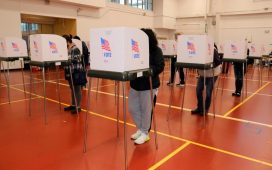The stereotype of mares being bossy and difficult may make some potential horse owners overlook them as mounts, a new study shows. Doctoral student Kate Fenner, along with her team of Georgina Caspar, Michelle Hyde, Navneet Dhand, Paul McGreevy, Cathrynne Henshall, Fiona Probyn-Rapsey, Andrew McLean and Katherine Dashper believe that this gender bias may jeopardize their welfare.
Published in PLOS ONE, the research shows that humans tend to apply human gender stereotypes to horses, which may cause people to underestimate the ability of fillies and mares. While equestrians who ride for leisure rarely ride stallions because of the belief they may be dangerous, this is the first study that shows negative attitudes toward mares, who are stereotyped to be bossy, difficult, unwilling or flighty.
Mares who disobey a rider’s wishes may be said to have a “bad attitude” and punished for their resistance, which is a welfare concern. However, when a gelding, the preferred mount of riders, disobeys, it’s thought that the rider was not clear enough in her aids and the error is mainly forgiven.
The scenario-based study, which was completed in Australia, used 1,233 respondents; 94 percent were women and 75 percent were riders with at least eight years of equine experience. Researchers believe that the gender bias is based on folklore that is being perpetuated: If a horseperson has grown up believing mares are more difficult, they will approach and ride them differently, though there is no evidence that mares truly are more difficult to ride.
Mares do, however, show more unpredictable behavior when they are in heat, but that this does not account for the ongoing prejudice against mares.
Read the full study here.
Read more at HorseTalk.
New to the Paulick Report? Click here to sign up for our daily email newsletter to keep up on this and other stories happening in the Thoroughbred industry.
Copyright © 2019 Paulick Report.








